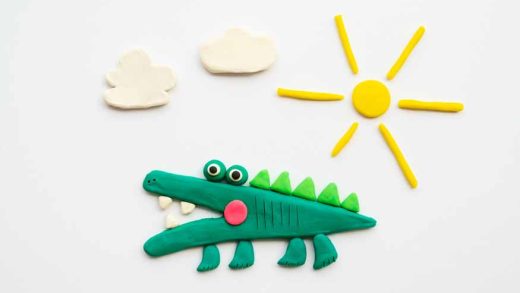For many, the idea of maintaining a handwritten diary might seem like an outdated practice. Our children inhabit an increasingly technology-driven world, in which everything from entertainment to education has shifted into the digital space. What then, is the benefit of writing a diary when a selfie, emoji or text message could communicate feelings and emotions just as effectively? The answer might surprise you.
In this blog, we take a look at the positive impact of diary writing for kids, and share with you some diary writing tips to get your kids started on a wonderful journey of thoughtful expression.
Benefits of Writing a Diary
Encouraging children to maintain a dairy is an excellent way to nurture their holistic development. Apart from the obvious benefit of improving language and written communication skills, diary writing for kids also helps develop self-reflection, ultimately leading to better emotional intelligence. Moreover, the act of setting aside time each day to write in their diary helps children get into the practice of maintaining a daily routine.
Cognitive Development
Regularly practicing writing is one of the quickest ways for children to improve their communications skills, helping them build a robust vocabulary and strengthen their grammar. In addition to this, the act of recounting their activities and experiences of the day help children to improve memory retention, while also teaching them how to organise and articulate their thoughts and feelings in a clear manner.
Reflection and Self-Awareness
When children write about daily life in their journals, they not only learn to recount their experiences, but also how they felt during those moments. This process of self-reflection is an extremely valuable lifeskill, as self-aware children are much more likely to be emotionally resilient.
Responsibility and Accountability
In order to maintain a dairy, children need to dedicate some time each day from their schedules. This practice helps them learn responsibility and time-management, while also fostering consistency. These skills go a long way in building responsible individuals who value accountability – to themselves as well as others.
How to Write a Diary for Kids: Top 5 Diary Writing ideas
- Make it Engaging and Exciting
- Set Up a Routine
- Encourage Different Forms of Creative Expression
- Participate in the Process
- Encourage them to be Open without Fear of Judgement
Let your child’s creativity flow through the process – they are more likely to continue with a routine if they are having fun. Activities like choosing their own personal diary and stationery, or decorating the pages with stickers and sketches are a fun and exciting way to begin.
Set up a daily time slot for diary writing. This could be when they get home from school, or just before bedtime. Make sure you stick to the routine, so that your child understands the importance of commitment and responsibility.
Since diary writing is something you would want your child to engage in on a regular basis, it is important that this activity doesn’t feel like a chore to them. So while you encourage them to stick to their routine of journaling everyday, look for some innovative diary writing ideas to keep them engaged and interested. A very popular choice for young children is to use drawing as a means of capturing the events of their day.
When your child first begins writing in a dairy, they may be confused or unsure of the task. Consider doing this daily activity together, so that you can prompt them with questions about their day, and their feelings. You could even consider maintaining a journal of your own, and share your entries with each other. This is also an excellent way to build a stronger bond between parent and child, as one of the primary benefits of writing a diary is that it requires time for quiet contemplation, away from all other distractions.
One of the fundamental principles of diary writing is honest self-reflection, which enables young children to explore and articulate their thoughts, ideas, feelings and beliefs. It is through this process that they become more self-aware of themselves and the world around them. However, many children will hesitate to be completely honest about their thoughts and feelings if they believe that their parents or teachers will judge them negatively. It is imperative that you reassure them that their diary is a safe space for them to express themselves. Furthermore, parents must respect their child’s privacy, and talk through what they share without judgement.
At Kangaroo Kids, we believe that holistic growth in young children takes place when there is a healthy balance between academic learning and socio-emotional development. Our integrated curriculum is designed to ensure that young children have access to varied experiences and teaching and learning methods so that they can grow into thoughtful, well-balanced individuals. To learn more about our curriculum, please visit our website or contact our admissions office today.









